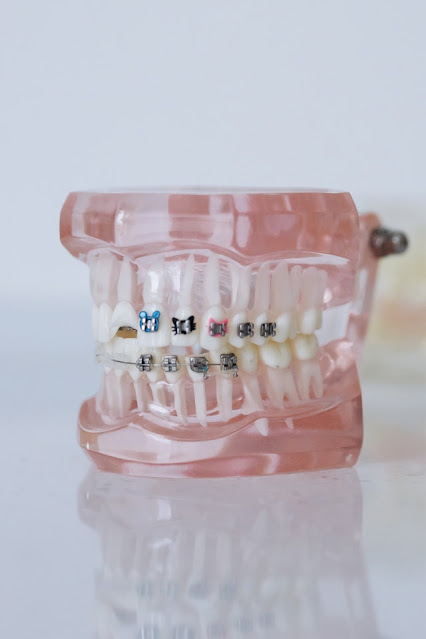When people talk about nutrition, it is often in relation to exercise and weight loss. It’s important that you get your balance of nutrients right after working out so you can recover properly. However, nutrition isn’t just important after exercise, it’s important all of the time.
Your body needs certain vitamins and nutrients to function properly and if you have deficiencies, it can lead to serious health problems. That’s why it’s so important to eat a balanced diet with plenty of fresh fruit and vegetables, and potentially consider taking vitamin supplements.
The problem is, a lot of people don’t realize that they are lacking in certain vitamins and nutrients until it starts having a serious impact on their health. Knowing how to spot the signs and adjust your diet accordingly is one of the best ways to protect your health.
These are some of the most common signs of vitamin deficiency that you should watch out for.
Getting Sick All The Time
We all catch a cold from time to time, no matter how healthy we are. But if you are constantly getting sick and you find it difficult to beat a nasty cold, it might be down to your nutrition. Certain vitamins and nutrients are essential for a healthy immune system, so if you are missing them from your diet, you will get sick very easily and your body won’t be very good at fighting off illness. Vitamin C is a common one and people often recommend that you eat citrus fruits when you have a cold. As well as citrus fruits, you can find it in most green vegetables and there are plenty of supplements you can take too.
You also need vitamin D for a healthy immune system, so make sure that you get outside and get some sun as much as you can. Iron, Zinc, and Selenium also boost your immune system and you can find them in leafy green vegetables, meat, and seafood. Unless you eat a varied diet that includes a range of different vegetables, as well as meat and pulses, your immune system will be weak and you will get sick all the time.
Fatigue
Fatigue is quite a common problem, which has many potential causes. It might be down to lack of sleep or an underlying health condition, but it is often due to poor nutrition. People that do not get enough iron in their diet often develop a condition called anemia, which is characterized by a low red blood cell count and causes excessive tiredness. If you speak to your doctor, they can give you a blood test to determine whether you have anemia or not. In some cases, adjusting your diet may be enough to solve the problem but doctors often prescribe supplements to help improve your iron levels and boost your energy.
A generally poor diet that is high in fat and sugar and low in vitamins will also lead to low energy levels. Even in people that have plenty of iron in their diet, this can still be a problem. If you notice that you are feeling tired, consider eating more fresh fruit and cutting back on unhealthy snacks. You’d be surprised how much difference it can make.
Having said that, chronic fatigue can also be a sign of more serious health problems, like heart disease, thyroid diseases, or mental health issues such as depression. So, don’t ignore the symptoms and see a doctor right away.
Lack Of Sleep
Your fatigue will be made worse by lack of sleep, which can also be linked to vitamin deficiencies. There are countless reasons why you may find it hard to get a good night’s sleep, so it’s important that you investigate different possibilities, but there is a strong chance that it could be down to a vitamin D deficiency. Lack of vitamin D is one of the more common deficiencies because we spend so much time inside and don’t get enough sunlight. This has been shown to have a negative impact on sleep patterns and the overall quality of sleep that people get. If you can, get outside a bit more and make simple lifestyle changes, like walking instead of driving, to increase your vitamin D intake.
Spoon Shaped Nails
People who have anemia often notice other changes as well as fatigue, like spoon shaped nails. If you notice that your fingernails are up from the nail bed, it’s likely that you are lacking in iron. Some people notice this symptom even if they don’t feel fatigued. Speak with your doctor and they may provide supplements, especially if you are very fatigued as well. However, they may simply recommend that you change your diet.
Hair Loss
Hair loss is one of the lesser known symptoms of nutritional deficiency, but your hair is actually a very good indicator of how well-rounded your diet is. Many people with a poor diet have dry and brittle hair and, in some cases, it can start to fall out. This often goes unnoticed in men because they assume that it is just male pattern baldness. However, improving your diet is one of the best tips to stop hair loss for both men and women. Some hair loss is normal as you get older but if you notice that your hair is suddenly very dry and you are losing large clumps, that is a cause for concern. Hair loss can indicate a deficiency in fatty acids, protein or iron, so if your hair has changed in any way, consider whether your diet may have a role to play.
Cracking Around The Mouth
Dry, cracked skin around the corners of your mouth can be caused by a cold sore, but it may also be an indication that you have a vitamin deficiency. This condition, called angular cheilitis, is fairly common and it is usually down to a vitamin B or an iron deficiency. People notice that these small areas of cracked skin appear and they will not heal. Over time, they keep breaking open again and they usually don’t go away unless you address the vitamin deficiency that is causing it.
Other oral health problems may be caused by a bad diet too. Mouth ulcers, for example, are very common in people that don’t get enough vitamin B in their diet. A pale, swollen tongue is another common sign of vitamin deficiency to watch out for as well.
Dry Eyes
Dry eyes are a very common problem these days because many of us spend all day working at a computer and most of us spend a good chunk of the day looking at our phone screens too. The light from the screens can put extra strain on the eyes, causing them to dry out and become painful. However, before you start blaming your phone, you should also consider your nutrition.
Vitamin A is incredibly important for eye health and many people that suffer from dry eyes also have a vitamin A deficiency. If left untreated, vitamin A deficiency can lead to more serious ocular health conditions and it is even the leading cause of preventable blindness in children around the world.
If you are concerned about dry eyes and you think that it may be caused by screens, you can use eye drops or sprays to rehydrate your eyes. Taking regular breaks to look away from the screen and refocus your eyes will also help a lot. However, if the symptoms persist, you should try to add more vitamin A to your diet if possible.
If you notice any of these symptoms, you may need to change your diet to address your vitamin deficiencies. But if you are concerned about anything, it’s best to be on the safe side and see your doctor.







































